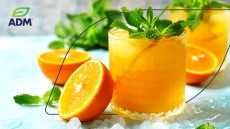Borregaard announces major vanillin price increase
increase for its vanillin and ethyl vanillin product lines.
The company said that the increase is the result of both significant higher energy and raw material costs and an imbalance between demand and supply capacity.
The announcement suggests that such pressures on vanillin, an ingredient that plays a crucial role in the flavouring of a wide variety of food and beverage applications including baked goods, soft drinks, syrups and ice cream, have become unavoidable.
"We are sold out the next three months," said Thomas Grys, director of Borregaard's vanillin business.
"For users of vanillin and ethyl vanillin without contracts it will not be a question of what price they get, but what volume they will be able to source from the market. We clearly want to prioritise supply to our long term customers, while we will put speed on increasing capacity to meet the surging demand."
Grys blamed the vanillin shortage on a significant drop in world capacity after the closure of two major Chinese producers, coupled with a globally increased demand. More than 2000 MT capacity has disappeared from the market this autumn.
The remaining Chinese producers increased the prices for vanillin and ethyl vanillin approximately 20 per cent in September, leading to a tremendous increase in demand for vanillin and ethyl vanillin from other sources.
Annual vanillin growth in the mature markets of Europe and the US is stable at around two per cent. But in China, this growth is set at over 10 per cent. As a result, a great deal of attention is being paid to what happens in this market.
Synthetic vanillin is a cost effective alternative to natural vanilla - about one-hundredth of the price of the natural product. Global demand currently hovers around 16,000 tons a year. It not only substitutes for vanilla, but also supplements adulterated vanilla extracts.
By comparison, total world demand for natural vanilla is about 40 metric tons. In addition, the supply of vanilla, of which 50 per cent comes form Madagascar, is highly susceptible to external disruption.
As a result, many companies have switched to synthetic vanilla flavouring.





















